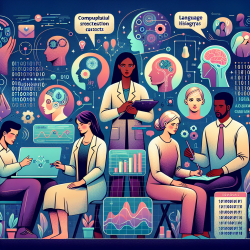Supporting students who are deafblind requires a unique and dedicated approach to ensure they receive a free and appropriate education, as mandated by law. Interveners play a crucial role in this process, providing one-to-one support that bridges the gap between these students and the world around them. Their work is not just about facilitating communication; it's about nurturing the social and emotional well-being of each child they support.
An intervener, often a paraeducator, works as part of the educational team under the direction of a classroom teacher. They are specially trained to help students who are deafblind access information and communication that would otherwise be out of reach due to their sensory limitations. This access is vital for developing a sense of security, trust, and readiness to learn.
The impact of intervener support on a child who is deafblind cannot be overstated:
- It significantly increases their access to sensory information.
- It enhances their ability to communicate needs and understand the world around them.
- It aids in the development of language and concept understanding.
- It increases their control over their life and participation in the general education curriculum.
Parents and professionals alike have noted the profound difference interveners make in the educational experiences of children who are deafblind. However, becoming an intervener requires specific training and, increasingly, certification. In the United States, this training is available through online university-based programs and state deafblind projects, all of which are grounded in the Council for Exceptional Children's intervener knowledge and skill competencies.
For those interested in the intervener profession or for educational teams considering the addition of an intervener, resources are available to guide decision-making and the employment process. These include tools for determining the appropriateness of intervener services for a student, job description samples, and compensation guidelines.
The availability and implementation of intervener services vary by state and district, highlighting the importance of consulting with state deafblind projects for specific information and support services. Through these efforts, we can ensure that every child who is deafblind has the opportunity to reach their full potential.
For more information, please follow this link.










